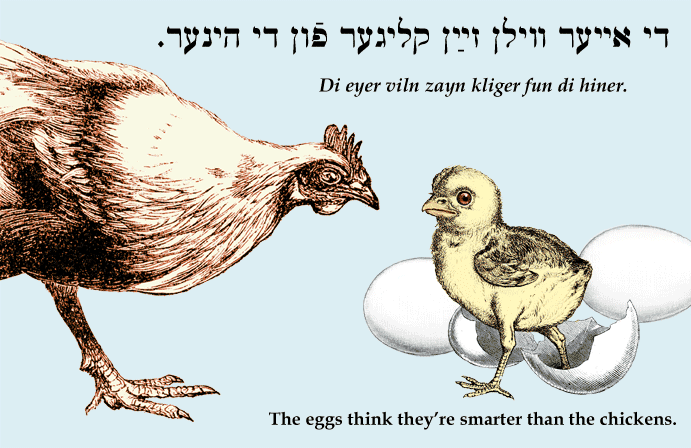In exploring the intricate tenets of the Bahá’í Faith, one finds a plethora of insights that transcend the mere philosophical musings often associated with traditional discourse. The symbolic relationship between chickens and eggs offers an intriguing backdrop against which one can examine deeper theological constructs, particularly in relation to atheism and the quest for understanding in an increasingly secular world. This imaginative analogy, rooted in the cultural folklore of expressions such as “The eggs think they’re smarter than the chickens,” can serve as a catalyst for a transformative inquiry into the nature of belief and knowledge.
At the heart of the Bahá’í teachings lies the affirmation of the oneness of humanity and the universality of religious truth. This foundation posits that all religions stem from the same divine source and that the underlying truths of each faith reflect a progressive revelation of knowledge appropriate to the context of the times. The metaphor of chickens and eggs can symbolize the stages of intellectual and spiritual development attendant upon this revelation. As humans embark upon their existential journey, they may initially perceive themselves in a state of ignorance—akin to eggs in their shells—believing themselves to be the ultimate arbiters of truth.
In addressing this metaphor, it becomes imperative to analyze the implications of hubris that often accompanies self-assuredness, particularly in the context of atheism. This assertion of independence from traditional beliefs can be likened to the egg’s assumption of superiority over the mother hen. Atheism, while advocating for rational thought and empirical evidence, often presupposes a finality to questions of existence that echoes the definitive confidence of the egg. However, just as the egg is bound by its physical limitations and is eventually transformed into a chicken, so too is atheism often transient in its certainty.
The Bahá’í perspective invites a dialogue with atheistic thought, suggesting that true wisdom lies not in the categorical denial of higher truths but in the humble acceptance of the ongoing nature of discovery. It tempers the intellectual bravado typical of atheism with a gentle reminder of the profound mysteries that life encompasses. The notion of ‘progressive revelation’ maintains that understanding is not a static achievement but an evolving process, suggesting that even the most skeptical perspective must consider potential revelations beyond current comprehension.
Importantly, Bahá’í teachings underscore the role of science and religion as complementary forces rather than opposing realms. In this framework, the chicken—the embodiment of wisdom and the nurturer—is a vital representation of the harmonious coexistence of faith and reason. Just as the chicken nurtures the egg, so too must the quest for knowledge be nurtured by both empirical inquiry and spiritual exploration. This synthesis invites atheists, agnostics, and theists alike to engage in a cooperative dialogue that respects differing viewpoints while fostering a collective pursuit of truth.
The curiosity piqued by the chicken-egg metaphor extends beyond epistemological discussions; it opens paths toward spiritual evolution. The act of questioning one’s own convictions is paramount within the Bahá’í framework. Individuals are encouraged to engage with their beliefs critically, analogous to an egg pondering its relationship with the chicken. In this sense, an atheistic perspective can contribute meaningfully to the discourse on spirituality, challenging believers to more deeply interrogate their dogmas.
Such introspection is essential; it fosters an environment where doubt is not demonized but rather embraced as a prelude to understanding. Just as leavening in bread requires a degree of heat and agitation before it can rise, so must the soul often endure spiritual trials before the seeds of faith take root. The acknowledgment of doubt as significant aligns with the Bahá’í recognition that each individual is endowed with the capacity to discern truth through their experiences, thereby reinforcing the potency of personal revelation.
Moreover, the Bahá’í teachings illuminate how preconceived notions shape perspectives. Just as an egg’s shell governs what it can perceive of the world, rigid ideologies can confine understanding, restricting one’s ability to explore broader horizons. The Bahá’í admonition to “investigate reality” resonates powerfully here, suggesting that utmost honesty and openness to exploration yield deeper insights beyond the superficial claims of certainty, whether they stem from religious or atheistic foundations.
Consequently, as individuals navigate the complexities of their convictions, the Bahá’í framework provides a rich, dynamic foundation to bridge the chasm between opposing philosophies. It asserts the importance of fostering an environment characterized by respect and intellectual humility, encouraging dialogic exchanges that seek common ground rather than division. As a symbolic representation, chickens and eggs serve as evocative reminders of the interdependent relationship between knowledge and belief, as well as the necessity of a fertile ground for growth.
In summation, the exploration of Bahá’í teachings through the lens of the chicken and the egg symbolizes the profound relationship between ignorance and enlightenment, between atheism and faith. This metaphor not only challenges the simplistic distinctions often drawn between belief systems but also prompts a reevaluation of what it means to seek truth in an ever-evolving landscape. The teachings inspire a shift in perspective: an invitation to journey alongside the Mother Hen of Wisdom, nurturing the eggs of inquiry and fostering a spirit of curiosity that is essential for both personal and collective growth.
